Humans
Sign up for our newsletter
We summarize the week's scientific breakthroughs every Thursday.
-
 Health & Medicine
Health & MedicineHow the new coronavirus stacks up against SARS and MERS
Coronaviruses are a diverse family that may be becoming more threatening to people.
-
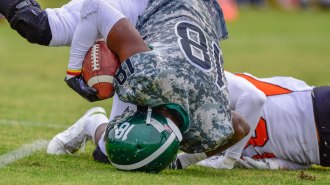 Health & Medicine
Health & MedicineLevels of certain proteins in the blood may act as concussion biomarkers
College athletes who suffered concussions had elevated blood levels of three proteins, a potential chemical sign that one day may aid diagnosis.
-
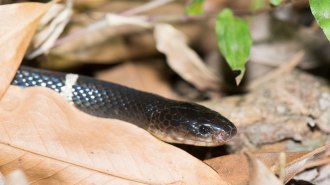 Health & Medicine
Health & MedicineNo, snakes probably aren’t the source of that new coronavirus in China
Scientists are skeptical about a new study that pinpoints snakes as the animal reservoir for the ongoing coronavirus outbreak in China.
-
 Health & Medicine
Health & MedicineWHO says China’s coronavirus outbreak isn’t a global emergency yet
While the WHO says the coronavirus outbreak isn’t a global emergency, China has locked down several large cities to stop the virus from spreading.
-
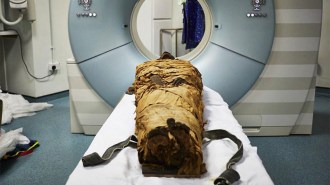 Archaeology
ArchaeologyA 3-D printed vocal tract lets an ancient mummy speak from beyond the grave
A re-created version of a mummy’s vocal tract reveals what this ancient Egyptian might have sounded like.
-
 Archaeology
ArchaeologyMount Vesuvius may have suffocated, not vaporized, some victims
A new study suggests people living near Pompeii who hid in stone boathouses died a slower death when the volcano erupted in A.D. 79.
-
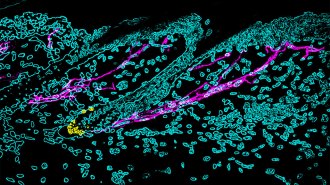 Humans
HumansStress turns hair gray by triggering the body’s fight-or-flight response
A study in mice finds stress responses deplete cells that give hair its pigment, making the strand white.
-
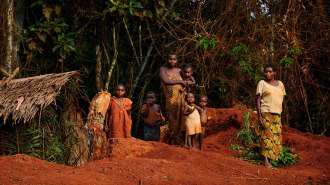 Genetics
GeneticsAncient kids’ DNA reveals new insights into how Africa was populated
Four long-dead youngsters from west-central Africa have opened a window on humankind’s far-flung African origins.
By Bruce Bower -
 Health & Medicine
Health & MedicineThe first U.S. case of a new coronavirus has been confirmed
After confirmation that a new coronavirus is transmissible between humans, U.S. health officials report a first case in Seattle.
-
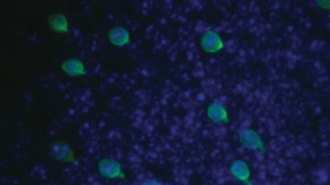 Health & Medicine
Health & MedicineHairy cells in the nose called brush cells may be involved in causing allergies
Some hairy cells in the nose may trigger sneezing and allergies to dust mites, mold and other substances, new work with mice suggests.
-
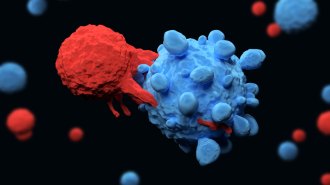 Health & Medicine
Health & MedicineExploding cancer cells can cause serious side effects in CAR-T cell therapies
Blocking a protein caused cancer cells targeted with CAR-T cell immunotherapy to shrink rather than burst, which may help reduce inflammation.
-
 Health & Medicine
Health & MedicineA new drug lowers levels of a protein related to ‘bad’ cholesterol
The next clinical trial will determine if a drug targeting a protein that carries fat and cholesterol reduces the risk of heart attack and stroke.